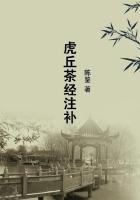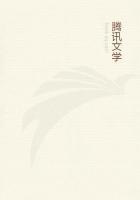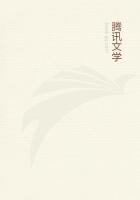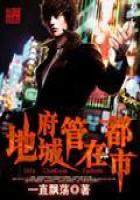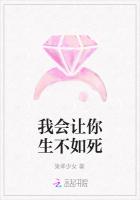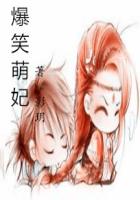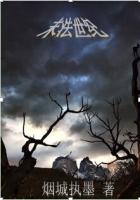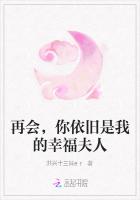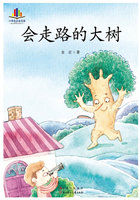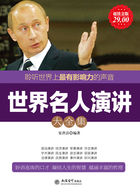Thus the white colour of the lily seems to dispose the mind to ideas of innocence, and the other seven colours, following the series from the red to the violet, similarly to ideas of (1) sublimity, (2)courage, (3) candour, (4) amiability, (5) modesty, (6) constancy, (7) tenderness.The bird's song tells of joyousness and contentment with its existence.At least so we interpret nature-whether such be its purpose or not.But it is the indispensable requisite of the interest which we here take in beauty, that the beauty should be that of nature, and it vanishes completely as soon as we are conscious of having been deceived, and that it is only the work of art-so completely that even taste can then no longer find in it anything beautiful nor sight anything attractive.What do poets set more store on than the nightingale's bewitching and beautiful note, in a lonely thicket on a still summer evening by the soft light of the moon? And yet we have instances of how, where no such songster was to be found, a jovial host has played a trick on the guests with him on a visit to enjoy the country air, and has done so to their huge satisfaction, by biding in a thicket a rogue of a youth who (with a reed or rush in his mouth) knew how to reproduce this note so as to hit off nature to perfection.But the instant one realizes that it is all a fraud no one will long endure listening to this song that before was regarded as so attractive.And it is just the same with the song of any other bird.It must be nature, or be mistaken by us for nature, to enable us to take an immediate interest in the beautiful as such; and this is all the more so if we can even call upon others to take a similar interest.And such a demand we do in fact make, since we regard as coarse and low the habits of thought of those who have no feeling for beautiful nature (for this is the word we use for susceptibility to an interest in the contemplation of beautiful nature), and who devote themselves to the mere enjoyments of sense found in eating and drinking.
SS 43.Art in general.
(1.) Art is distinguished from nature as making (facere) is from acting or operating in general (agere), and the product or the result of the former is distinguished from that of the latter as work (opus) from operation (effectus).
By right it is only production through freedom, i.e., through an act of will that places reason at the basis of its action, that should be termed art.For, although we are pleased to call what bees produce (their regularly constituted cells) a work of art, we only do so on the strength of an analogy with art; that is to say, as soon as we call to mind that no rational deliberation forms the basis of their labour, we say at once that it is a product of their nature (of instinct), and it is only to their Creator that we ascribe it as art.
If, as sometimes happens, in a search through a bog, we light on a piece of hewn wood, we do not say it is a product of nature but of art.Its producing cause had an end in view to which the object owes its form.Apart from such cases, we recognize an art in everything formed in such a way that its actuality must have been preceded by a representation of the thing in its cause (as even in the case of the bees), although the effect could not have been thought by the cause.
But where anything is called absolutely a work of art, to distinguish it from a natural product, then some work of man is always understood.
(2.) Art, as human skill, is distinguished also from science (as ability from knowledge), as a practical from a theoretical faculty, as technic from theory (as the art of surveying from geometry).For this reason, also, what one can do the' moment one only knows what is to be done, hence without-anything more than sufficient knowledge of the desired result, is not called art.To art that alone belongs which the possession of the most complete knowledge does not involve one's having then and there the skill to do it.Camper, describes very exactly how the best shoe must be made, but he, doubtless, was not able to turn one out himself.In my part of the country, if you set a common man a problem like that of Columbus and his egg, he says, "There is no art in that, it is only science": i.e., you can do it if you know how; and he says just the same of all the would-be arts of jugglers.To that of the tight-rope dancer, on the other hand, he has not the least compunction in giving the name of art.
(3.) Art is further distinguished from handicraft.The first is called free, the other may be called industrial art.We look on the former as something which could only prove final (be a success) as play, i.e., an occupation which is agreeable on its own account; but on the second as labour, i.e., a business, which on its own account is disagreeable (drudgery), and is only attractive by means of what it results in (e.g., the pay), and which is consequently capable of being a compulsory imposition.Whether in the list of arts and crafts we are to rank watchmakers as artists, and smiths on the contrary as craftsmen, requires a standpoint different from that here adopted-one, that is to say, taking account of the proposition of the talents which the business undertaken in either case must necessarily involve.
Whether, also, among the so-called seven free arts some may not have been included which should be reckoned as sciences, and many, too, that resemble handicraft, is a matter I will not discuss here.It is not amiss, however, to remind the reader of this: that in all free arts something of a compulsory character is still required, or, as it is called, a mechanism, without which the soul, which in art must be free, and which alone gives life to the work, would be bodyless and evanescent (e.g., in the poetic art there must be correctness and wealth of language, likewise prosody and metre).For not a few leaders of a newer school believe that the best way to promote a free art is to sweep away all restraint and convert it from labour into mere play.

